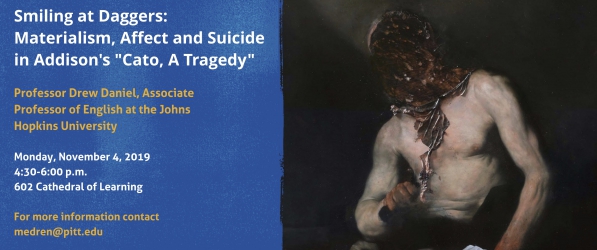
Careening across intellectual history from classical origins into medieval and early modern literary cultures and on to his recent appropriation by libertarian thinktanks as a potent symbol of patriotic masculinity, Marcus Porcius Cato (95-46 BCE) remains both rampant and troubling. Wildly popular both in England and then abroad in the English speaking world throughout the eighteenth century, Joseph Addison’s “Cato, a Tragedy” (1713) arguably ensured the transmission of this figure into the American political bloodstream by staging Cato’s death as a curiously elastic resource for political feeling, turning voluntary self-killing into a highly portable cultural readymade. Swerving away from the facts relayed by Plutarch and attempting a last-ditch reconciliation of Lucretian materialism and proto-Christian-typology, Addison’s play tightens into focus some enduring questions: what are the affective consequences of philosophical materialism? Under what circumstances, if any, can self-killing become admirable?
Location and Address
CL 602 (Humanities Center)